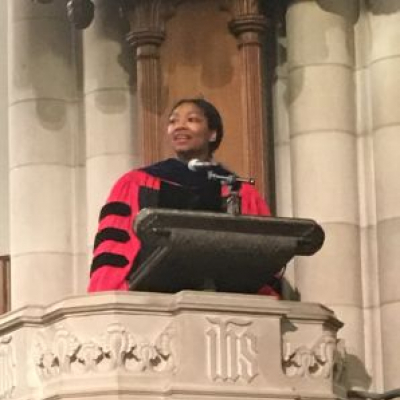
Ordination of women continues to remain a controversial issue in numerous Christian denominations. In 1939, Duke Chapel welcomed its first woman preacher (Georgia Harkness), paving way for more than 75 illustrious women preachers who guest-preached or served as associate ministers to Duke Chapel between 1963 to 2001. Who were they? What did they preach? How did they preach?
#MyVoiceMyBody interrogates the intersections of body, place, and performance in the space of Duke Chapel. Students will work with the archival and digital contents of the Duke Chapel Recordings Digital Collection, conduct in-person/digital interviews with these pioneering women, and learn the basics of sermon analysis to reveal the connections between identity, rhetoric, and politics. Currently a Bass Connections project, the team will review sermon transcriptions to confirm accuracy and consider innovative ways to map these sermons beyond the liturgical frameworks of church year, appointed readings or name recognition to discover research directions for future users. This work will expand the archive’s utility to include new approaches—for example, to the fields of History, Women’s Studies, Performance Studies, Ethnography, Sociology, Literature and Philosophy—mitigated through the history of one pulpit located in the American South.
In spring 2020, the project team will host a symposium to consider the limits and potentials of the archive and the related pedagogical portal for classroom use and for preachers who wish to expand their repertoire of style, content and approach to ministry.
Activating the archive for a broader academic community will advance the conversation about sermons’ potential to move local, national and international narratives toward inclusion and justice. Scholars and preachers will gain access to a vibrant online resource of curated examples that point to the demands and potentials of preaching in America.
Current goals of the Bass Connections project include: content-rich map of existing data; online exhibition of interviews and timelines; conference papers and presentations; outline for a future project connecting homiletics, humanities and/or social sciences.